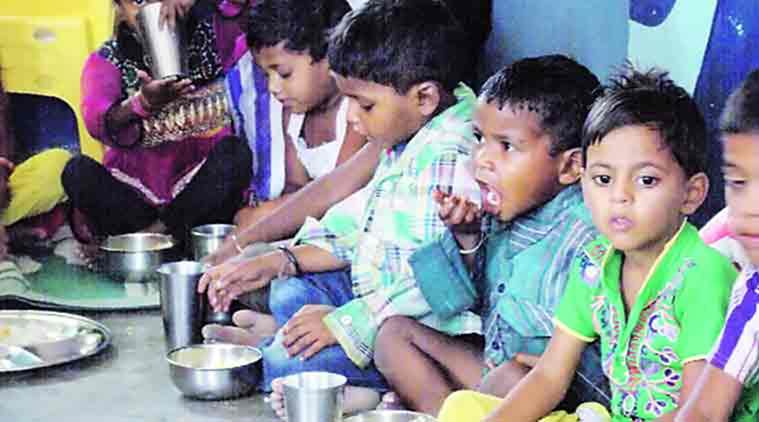Nutrition On My Plate
Dietary diversity can make food system nutrition-sensitive, climate-resilient

The government is adopting best practices to reduce the malnutrition cases and this has shown tremendous results, Chief Minister Devendra Fadnavis told PTI. (File)
India’s flagship programme to improve nutritional outcomes for children, adolescents, pregnant women and lactating mothers, the National Nutrition Mission (NNM) or the Poshan Abhiyan, reflects an amalgamation of scientific principles, political fortitude and technical ingenuity. The Abhiyan highlights a strong focus on convergent actions from the national to the village level. The key nutrition interventions and strategies, which form the core of NNM, contribute to the targets of the World Health Assembly for nutrition and the Sustainable Development Goals (SDGs), dedicating Goal 2 to the challenge of meeting “zero hunger”.
Good nutrition is critical to avert the irreversible cumulative growth and development deficits. It contributes towards improving maternal and child health, learning outcomes, adult productivity and strengthening gender equality. Nutrition security is inextricably linked to food and agriculture, yet, the agriculture sector does not clearly fall within the scope of the Abhiyan. However, there are areas where the sector could support the Abhiyan and help to achieve its objectives. In line with the Zero Hunger vision, the Food and Agriculture Organisation (FAO) of the United Nations can support ongoing NNM efforts related to dietary diversity through agricultural diversification and sustainable intensification, thus making the agriculture and food system more nutrition-sensitive, climate-resilient and socio-economically viable simultaneously.
For long, the agriculture sector focused on increasing food production — particularly staples, which led to lower production and consumption of indigenous traditional crops/grains, fruits and other vegetables, impacting food and nutrition security in the process. Today, globally, 821 million people suffer chronic undernourishment of which 196 million reside in India, according to ‘The State of Food Security and Nutrition in the World 2018’ report. The twin burden of malnutrition — that is, undernutrition, along with overweight and obesity, coexists in many countries and its cost to the global economy is equivalent to $3.5 trillion a year.
The momentum towards a reverse trend, however, is slowly gaining ground, which is reflected in the production record of not only horticulture crops and fruits, but milk too. In 2017-18, milk production in India rose to 165 million tonnes from about 35 million tonnes in 1980, also making it one of the largest employers of rural people, especially women. India ranks second in fruits and vegetables production in the world, after China. As per the National Horticulture Database (2015-16), India produced 90.2 million metric tonnes of fruits and 169.1 million metric tonnes of vegetables. The area under cultivation of fruits stood at 6.3 million hectares while vegetables were cultivated at 10.1 million hectares.
The time is opportune for agricultural interventions such as increasing the production of targeted nutrition-rich crops (nutri-cereals), homestead gardens, and diversification of the agricultural production system towards fruits, vegetables and aquaculture, to address the adverse effects of malnutrition.
Further, with the Poshan Abhiyan advocating the “Triple A” approach, that is building the capacity of ASHA, Anganwadi Worker (AWW) and Auxiliary Nurse Midwife (ANM) workers, there is an opportunity to leverage the agriculture extension services in the country. The extension workers have a direct and ongoing contact with smallholder farmers. They can be the agents of change for nutritional intervention by leveraging modern technologies to impart nutrition-linked messages for bringing about sustainable behaviour change towards food and nutrition. UN agencies such as FAO can provide support to develop and plan targeted activities for capacity building of the agriculture extension agents, so they can promote nutrition-sensitive agriculture. The support can help to foster research on areas such as bio-fortification of crops, enhancing production diversity including the coarse grains/millets and food safety.
The Poshan Abhiyan presents an opportunity for inter-sectoral collaboration that can amplify collective actions to improve nutrition indicators and achieve the goal of “zero hunger” in the country. Agriculture is not merely an activity to make “food” available to the people but an indispensable ingredient in this recipe of achieving “sampoorna poshan” for the citizens of this country.
The writer is the FAO representative in India







































No hay comentarios:
Publicar un comentario